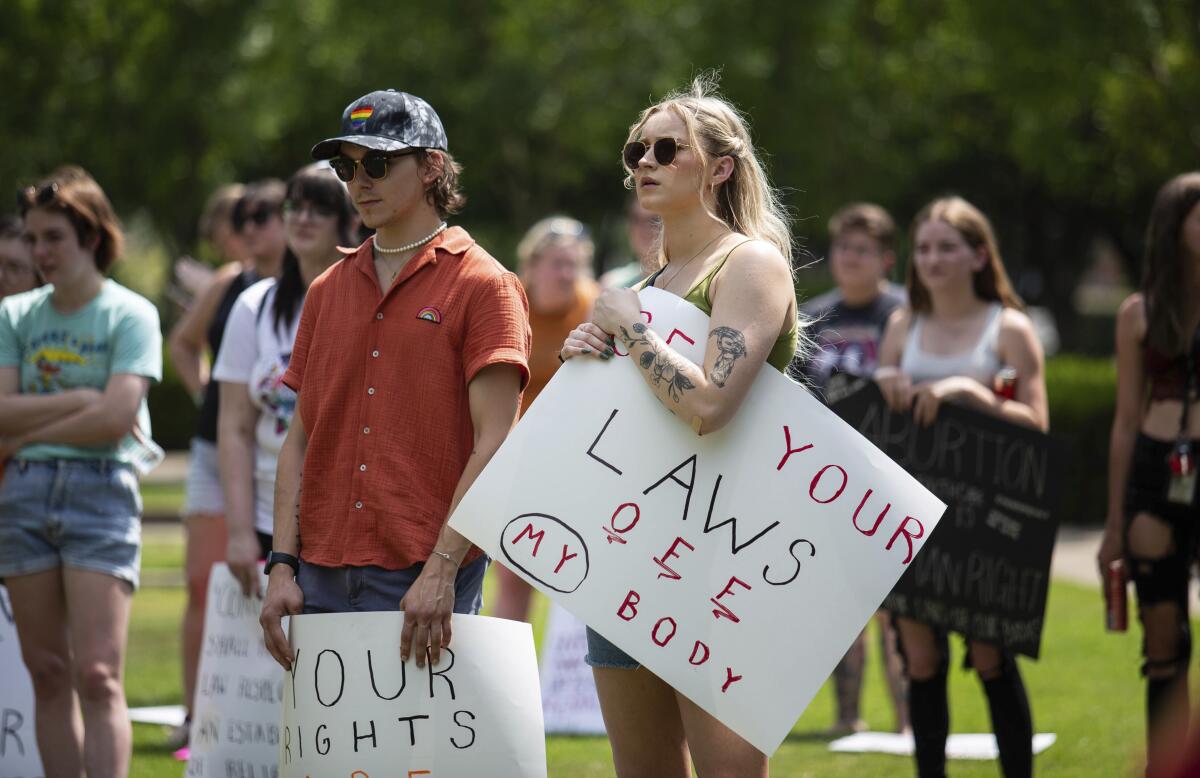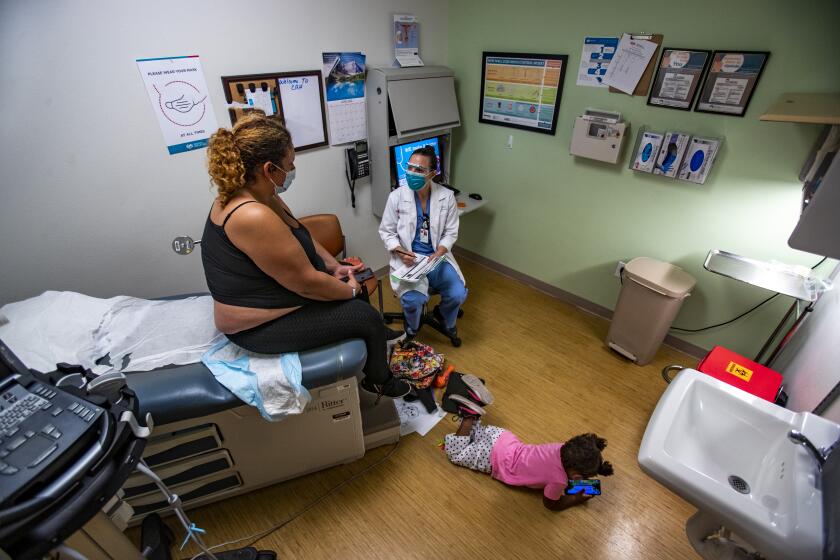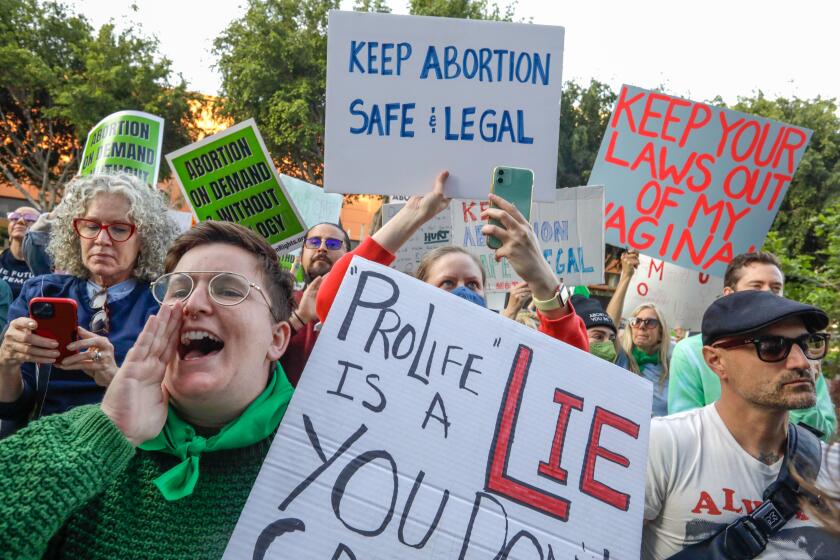Judge temporarily blocks Kentucky’s near-total abortion ban

LOUISVILLE, Ky. — A judge cleared the way Thursday for abortions to resume in Kentucky, temporarily blocking the state’s near-total ban on the procedure that was triggered by the Supreme Court ruling overturning Roe vs. Wade.
Abortion rights supporters had sought the ruling, which pauses the 2019 Kentucky law for now. Under so-called trigger provisions of the law, abortions ended abruptly Friday once the high court ruled to end nationwide constitutional protections for abortions.
Since that momentous decision, nearly 200 women with appointments have been turned away from EMW Women’s Surgical Center, one of the two Louisville abortion clinics, according to Heather Gatnarek, an attorney for the American Civil Liberties Union of Kentucky.
“We’re glad the court recognized the devastation happening in Kentucky and decided to block the commonwealth’s cruel abortion bans,” leaders from Planned Parenthood and the ACLU said in a joint statement Thursday. “Since the Supreme Court overturned Roe last Friday, numerous Kentuckians have been forced to carry pregnancies against their will or flee their home state in search of essential care. Despite this victory, we know this fight is far from over.”
Kentucky Atty. Gen. Daniel Cameron, a Republican running for governor, said that Thursday’s ruling had no basis in the state Constitution and that he would challenge it. “We will do everything possible to continue defending this law and to ensure that unborn life is protected in the Commonwealth,” he said in a statement.
The Kentucky case reflects the battles being waged in courthouses around the country over whether pregnancies may be lawfully ended. Some of the disputes involve bans that have been on the books, unenforced, for generations. Some involve trigger laws that were specifically designed to take effect if Roe vs. Wade were to fall. Some involve prohibitions on abortion that were held up pending the Supreme Court ruling and are now moving forward.
New Mexico is one of six states that allow late-term abortions. With Roe vs. Wade reversed, it expects a steep rise in out-of-state visitors.
Attorneys for the Kentucky clinics argued that the state Constitution protects the right to an abortion. Cameron’s legal team says no such constitutional right exists.
Jefferson County Circuit Judge Mitch Perry heard arguments from both sides in a Louisville courtroom Wednesday before issuing his order.
The ruling came in response to a lawsuit filed this week on behalf of the abortion clinics contending that women were being “forced to remain pregnant against their will” in violation of the state Constitution. The suit asked the judge to temporarily block the trigger law, along with another Kentucky statute that attempted to prevent abortions at six weeks of pregnancy.
The judge Thursday also agreed to temporarily block the six-week ban. That measure was previously halted by a federal court.
Ahead of an expected Supreme Court decision on Roe vs. Wade, medication abortions have surged — and drawn the interest of opposition groups.
The trigger measure contains a narrow exception allowing a physician to perform a procedure necessary to prevent the death or permanent injury of a pregnant woman. It does not permit abortions in cases of rape or incest.
The request to continue abortion services in Kentucky — through intervention by state courts — could turn into a stopgap effort. Kentuckians will vote in November on a ballot initiative that, if ratified, would establish that no state constitutional right to abortion exists. Both sides of the abortion debate are busy organizing ahead of the election.
More to Read
Sign up for Essential California
The most important California stories and recommendations in your inbox every morning.
You may occasionally receive promotional content from the Los Angeles Times.












